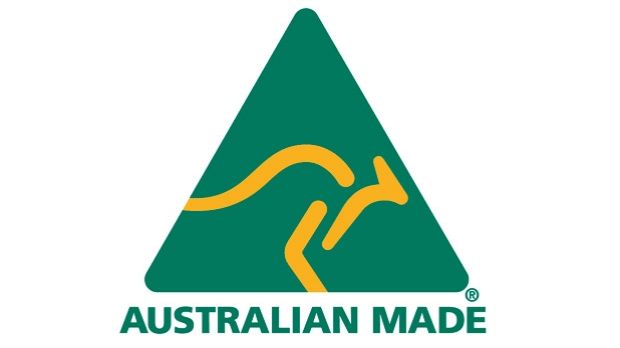New research from market intelligence agency Mintel has revealed that as many as seven in 10 (72 per cent) of metro-based Australians make the effort to buy food or drink products with an Australian Made/Grown logo, while 17 per cent always make it a point to do the same.
Among the urban Australians who purchase products with the Australian Made/Grown logo, three in 10 (29 per cent) do so because the logo helps to instil trust in the product/brand, while one in four (25 per cent) believe that it builds the authenticity of a product.
With safety scares more frequent than ever, Mintel research shows that 28 per cent of urban Australians say that the Australian Made/Grown logo assures them of the health or safety level of food or drink products.
Meanwhile, the recent changes made to the Australian Made/Grown logo appear to have had a positive effect on Australian consumers with six in 10 urban Australians agreeing that the new percentage bar tells them clearly the proportion of ingredients in the product that are either local or imported.
However, homegrown products and services seem to have less of an effect on Australia’s iGeneration (post-Millennial) consumers. Just 19 per cent of urban Australian consumers aged 18-24 say that they are most likely to be influenced to purchase locally-made or grown products or services. Instead, bigger influencers for Australia’s iGens include products or services that provide convenience (40 per cent), or are from their favourite brand (34 per cent). In comparison, older generations are more inclined to feel strongly about local products or services as indicated by urban Australians aged 45-54 (39 per cent) and those 55 and above (56 per cent).
Commenting on the study, Shelley McMillan, Mintel’s trend and innovation consultant, said: “Deteriorating faith in institutions of government, businesses, non-governmental organisations and the media has created doubt and confusion among many, weakening consumer trust worldwide.
“On top of that, the sheer number of safety scares that have been reported is enough to spur people to put more thought and care into what they are consuming,.
“Our research indicates that local products or services that come with the Australian Made/Grown logo are likely to resonate well with Australian consumers, especially those featuring the newly revamped logo which now provides an overall heightened understanding of the provenance of a product. What’s more, older generations are more likely to purchase locally made or grown products or services than their younger counterparts—consumers who are generally more attuned to the digital world, more aware and open-minded, and perhaps have higher levels of distrust for official bodies.”
“When it comes to winning the trust of Australia’s younger population, companies that pursue progressive policies or campaigns will be the winners of this race—particularly when it comes to fighting for equality. A whopping 71 per cent of urban Australians aged 18-34 say that gender equality is important to them, according to Mintel research. Indicating the need for more gender equality in Australia, as many as one in three (33 per cent) Australian females disagree that their gender is accurately represented in advertising, while over six in 10 (65 per cent) Australian females are concerned with the wage difference between men and women.”
Jane Barnett, head of insights, South Asia Pacific, at Mintel, also commented: “With the emergence of a younger, more idealistic generation of consumers, brands would do well if they are more brave and progressive with their approach when driving up brand initiatives.
“In Australia, consumers are known to be big advocates of gender issues and while there are companies that are championing gender equality and diversity in society, more could still be done, as reflected in our research. Commercially, it also makes sense to progress feminist causes to win consumer trust given the higher life expectancy levels of women, and the ratio of women to men in Australia’s population. That said, it is important that companies associating themselves with these do-good initiatives ensure that they have enough ground, credibility and consumer understanding to do so.”
Finally, Mintel research shows that overall one third of (32 per cent) urban Australians say that their favourite brands play a big part in influencing their purchase decisions. And it is through friendship that brands can win consumer trust and loyalty. Mintel Trend ‘Accentuate the Negative’ discusses how brands across the world are turning negatives into positives by highlighting their mistakes and shortcomings, all in the name of trust and transparency.
“Brands are under the close scrutiny of today’s consumers, and they need to be aware of just how exposed they are to the public. With nowhere to hide, it’s best that a brand holds its hands up and approach the situation head on in times of crisis. Companies are also now seeking to stay ahead of consumer criticism by quickly and visibly reacting to it. This way, negative buzz around a brand can be addressed, and in doing so, the situation can be turned into and communicated as something positive. Essentially, it’s important for brands to be honest, be human and be positive, all to build that level of ‘friendship’ and trust with consumers,” Barnett concluded.








